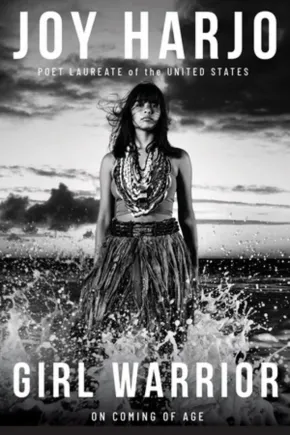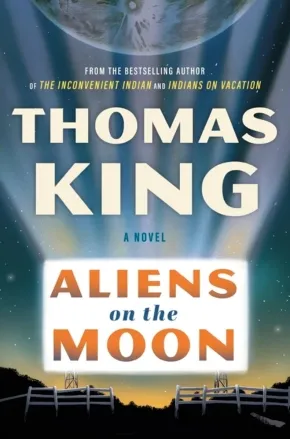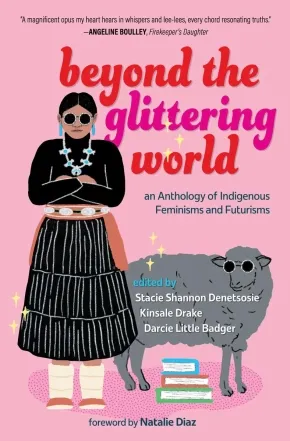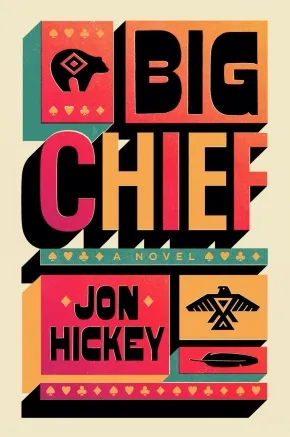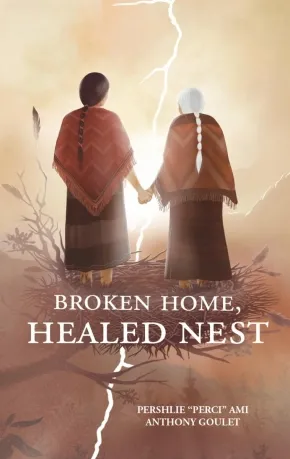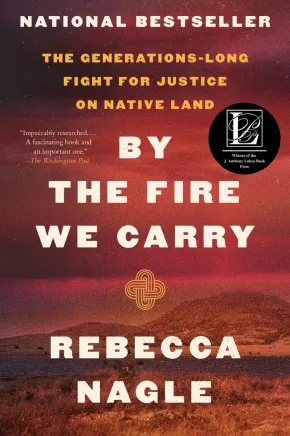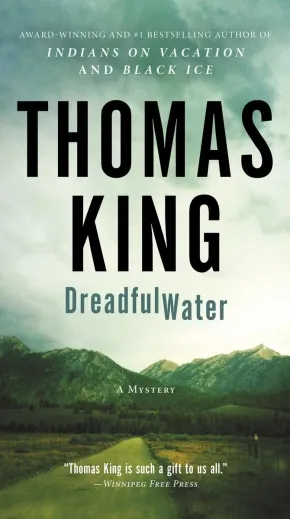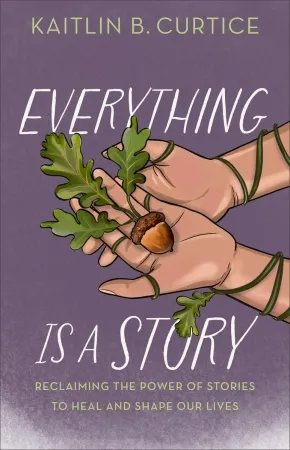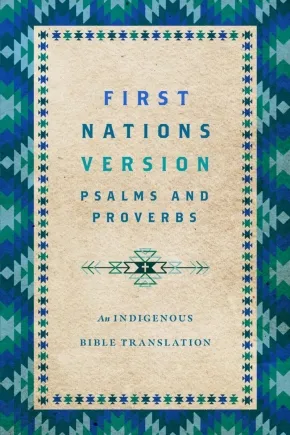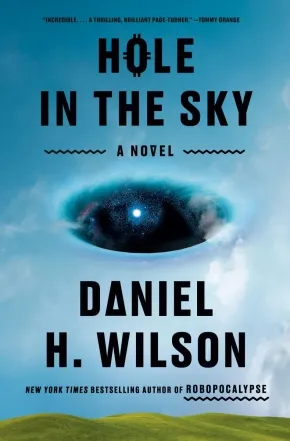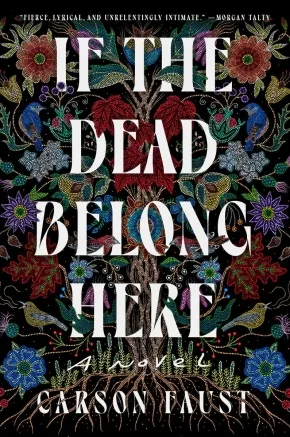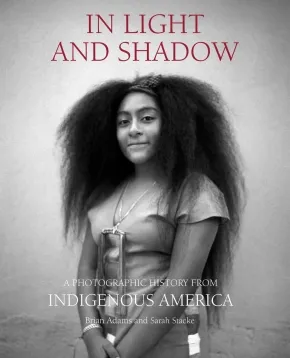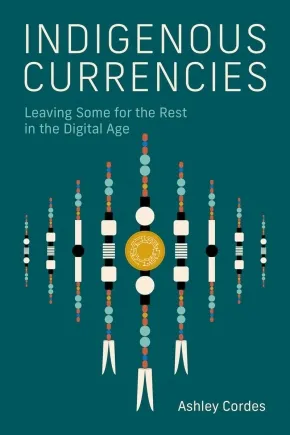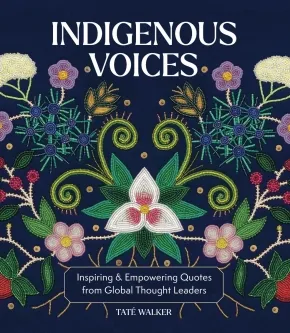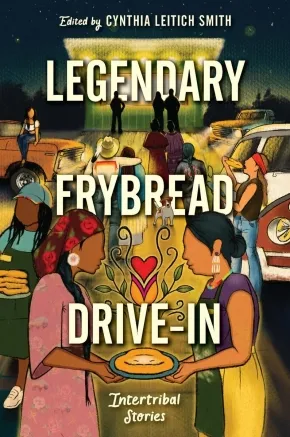
Native American
1
-
15
of
207 Results;
Sort By
Go To
of 14
FLASH SALE! Girl Warrior: On Coming of Age
$21.75 $28.99
Format:
Hardcover
Text Content Territories:
Indigenous American; Native American; Muscogee (Creek);
Reading Level: N/A
ISBN / Barcode: 9781324094173
Synopsis:
Synopsis:
“To know ourselves is the most profound and difficult endeavor. Though we are all made of the same questions, we have individual routes to the answers, or to reframing the questions. Why is there evil in the world? Why do people suffer, and some more than others? Why are we here? What are we doing here? What happens after death? Does anything mean anything at all? Who am I and what does it matter?” writes Joy Harjo, renowned poet and activist, in this profound work about the struggles, challenges, and joys of coming of age.
In her best-selling memoir Poet Warrior, Harjo led readers through her lifelong process of artistic evolution. In Girl Warrior, she speaks directly to Native girls and women, sharing stories about her own coming of age to bring renewed attention to the pivotal moments of becoming including forgiveness, failure, falling, rising up, and honoring our vast family of beings.
Informed by her own experiences and those of her ancestors, Harjo offers inspiration and insight for navigating the many challenges of maturation. She grapples with parents, friendships, love, and loss. She guides young readers toward painting, poetry, and music as powerful tools for developing their own ethical sensibility. As Harjo demonstrates, the act of making is an essential part of who we are, a means of inviting the past into the present and a critical tool young women can use to shape a more just future. Lyrical and compassionate, Harjo’s call for creativity and empathy is an urgent and necessary work.
Reviews
"Joy Harjo combines the wisdom that was here long before Europeans showed up with the challenges of a woman’s life in the present. The result is inspired by the past and a personal preparation for the future."— Gloria Steinem, feminist activist and author
"What a beautiful and brilliant call to arms. I wish I had Joy Harjo’s words when I was young. This book is a lovely ode to her own bravery and by extension, all of ours. Girl Warrior gives possibility to young people (and all people) through Joy Harjo’s own coming-of-age narrative. More than about having waded through tumultuous waters and survived to not only tell the story but thrive inside the people we become on the other side. This book is simply a balm."— Jacqueline Woodson, National Book Award winner
Additional Information
176 pages | 5.37" x 8.00" | Hardcover
Aliens on the Moon: A Novel
$34.99
Format:
Hardcover
Text Content Territories:
Indigenous Canadian;
Reading Level: N/A
ISBN / Barcode: 9781443475891
Synopsis:
Synopsis:
From the #1 bestselling and award-winning author of Indians on Vacation, a witty and wry novel set in a small Ontario town where all is seemingly ordinary except for one thing—aliens have landed on the moon
In Thomas King’s new novel, the citizens of a small Ontario town face life-changing decisions. Bria’s grandmother asks her to take her great-grandmother’s rosary to Edmonton and return it in person to the pope. When she flings it into the lake, the rosary somehow hits the pope on the cheek, thousands of kilometres away. It is the same rosary. How is this possible? Thea is furious at her son for putting her in an old-age home. She should have had a daughter. A daughter would never have forced her from her home. Darlene is mixed up with the no-good petty thief Billy. When she ends up in the hospital, she finds Thea’s fanny pack on the floor. Darlene needs the $265 tucked inside, but she also wants a reward for returning the fanny pack. Herb has bought the drive-in movie theatre on the edge of town and has turned it into his home. He watches movies on the big screen while treating the parking lot as his personal driving range. Should he travel west to see his family on the reserve? Nico has a Subaru whose battery keeps failing, but there are no replacements in North America. Gary and Brenda from the dealership are having an affair. Richard wants to set up a dating profile but has no cell phone.
Just the stuff of ordinary life except for one thing: Aliens have landed on the moon. They are watching Earth and earthlings. What is their plan? With the arrival of the aliens, ordinary life is upended in ways that are both hilarious and revealing. While some people fear the aliens’ three-part mandate to save the planet (which might have been written by a grade 9 student in the US), others think the arrival of the aliens is a golden opportunity for a deep discount weekend at Costco that could possibly rival Amazon’s Black Friday.
Additional Information
272 pages | 6.00" x 9.00" | Hardcover
Beyond the Glittering World: An Anthology of Indigenous Feminisms and Futurisms
$29.50
Format:
Paperback
Text Content Territories:
Indigenous American; Native American;
Reading Level: N/A
ISBN / Barcode: 9798890920300
Synopsis:
Synopsis:
From adventures in Indigenous futurism to tales of first love, the stories and poems of Beyond the Glittering World proclaim and celebrate a rising generation of Native American storytellers.
Beyond the Glittering World brings together twenty emerging and established Native women writers and writers of marginalized genders, including Moniquill Blackgoose, Heid E. Erdrich, A.J. Eversole, Chelesa Hicks, and D. Daye Hunter. Immersing readers in worlds as varied as their authors, this collection presents an array of singular voices at their genre-bending, boundary-breaking, devastating, and joyous best.
Reviews
"An evocative compilation of voices pondering Indigenous futures and the shape of Indigenous love. Beyond the Glittering World holds a healthy dose of gender-bending, genre-challenging, future-hoping might. This anthology is a welcome addition to the field of Indigenous anthologies.”—DEBORAH JACKSON TAFFA, Whiskey Tender
Additional Information
240 pages | 5.25" x 8.00" | Paperback
Big Chief: A Novel
$34.00
Format:
Hardcover
Text Content Territories:
Indigenous Canadian; First Nations; Anishinaabeg;
Reading Level: N/A
ISBN / Barcode: 9780771015496
Synopsis:
Synopsis:
There There meets The Night Watchman in this gripping literary debut about power and corruption, family, and facing the ghosts of the past.
Mitch Caddo, a young law school graduate and aspiring political fixer, is an outsider in the homeland of his Anishinaabe ancestors. But alongside his childhood friend, Tribal President Mack Beck, he runs the government of the Passage Rouge Nation, and with it, the tribe’s Golden Eagle Casino and Hotel. On the eve of Mack’s reelection, their tenuous grip on power is threatened by a nationally known activist and politician, Gloria Hawkins, and her young aide, Layla Beck, none other than Mack’s estranged sister and Mitch’s former love. In their struggle for control over Passage Rouge, the campaigns resort to bare-knuckle political gamesmanship, testing the limits of how far they will go—and what they will sacrifice—to win it all.
But when an accident claims the life of Mitch’s mentor, a power broker in the reservation’s political scene, the election slides into chaos and pits Mitch against the only family he has. As relationships strain to their breaking points and a peaceful protest threatens to become an all-consuming riot, Mitch and Layla must work together to stop the reservation’s descent into violence.
Thrilling and timely, Big Chief is an unforgettable story about the search for belonging—to an ancestral and spiritual home, to a family, and to a sovereign people at a moment of great historical importance.
Reviews
“A compelling and strong Native American novel about politics and power and how far some people will go to hold on to what they have.”—Brandon Hobson, author of National Book Award finalist Where the Dead Sit Talking
"Deliciously ruthless and absolutely huge, Big Chief unleashes the Shakespearean realities of Passage Rouge with seismic ambition and brilliance. Prepare to relish every dice roll, partisan jab, and monkey wrench thrown in this all-out showdown from maestro Jon Hickey—a colossal novel of and for our time." —Cody Caetano, author of Half-Bads in White Regalia
"Jon Hickey throws the reader in the backseat of a tricked out F350 and takes them for a wild ride across the Rez following a J. Crew NDN, a Chief who's in over his head, and their crew. This is a must read as Hickey brings us into the chaos and catastrophes that the colonial imposed electoral system creates in Indigenous communities but also shows the reader how community, a sense of belonging, and family is what really matters in the end. This is a book that you won't put down until the last ballot is counted."—Conor Kerr, author of Prairie Edge
“Taut, timely, and brimming with suspense, Big Chief questions our notions of power and morality, holding a mirror to our crooked, calculating world. This is a monumental debut."—Kirstin Chen, New York Times bestselling author of Counterfeit
“Big Chief features all the twisty chessmanship—the familial feuds, the financial games, the political maneuvering—of Succession and sets it against the backdrop of Indian country. Jon Hickey has written one hell of an addictive and important debut novel.”—Benjamin Percy, author of The Ninth Metal and Red Moon
Additional Information
320 pages | 5.50" x 8.25" | Hardcover
Broken Home, Healed Nest
$20.99
Format:
Paperback
ISBN / Barcode: 9781778540578
Synopsis:
Synopsis:
“Because you believed me, I began to believe myself. Because of you, I am here.”
[Trigger Warning] Please note this book addresses sensitive topics including suicide, substance abuse, and family violence. While these emotionally challenging realities are held thoughtfully, and with love, this story may be triggering.
Jessica has contemplated suicide for a while now. Grappling with the reverberating grief of losing her beloved grandmother and the trauma of a broken home, young Jessica is reaching a place so far from herself, her community, and the traditional Indigenous teachings she once lived by, it is frightening.
When it all becomes too much, Jessica attempts to take the final step over the ledge. What follows is a journey through the sacred spaces within memory, song, and the spirit world, guided by two playful tricksters—eagles, who happen to have lifetimes of wisdom to share.
With a love of riddles and soaring beyond the edges of possibility, they turn and twist Jessica’s reality until she can finally ground herself in what she has known all along, and allow the love, strength and voice of her beloved grandmother to once again be remembered and heard. The trajectory of Jessica’s life will be changed forever.
From Hopi Elder, Pershlie "Perci" Ami, and Street Outreach Worker, Anthony Goulet, comes a creative, sensitive, and thoughtful approach to the topic of suicide. Combined, they have over forty years of experience in youth development and suicide prevention.
Educator Information
Recommended for ages 14+
Trigger Warning: Please note this book addresses sensitive topics including suicide, substance abuse, and family violence. While these emotionally challenging realities are held thoughtfully, and with love, this story may be triggering.
Additional Information
109 pages | 5.50" x 7.50" | Paperback
By the Fire We Carry: The Generations-Long Fight for Justice on Native Land (PB)
$24.99
Format:
Paperback
Text Content Territories:
Indigenous American; Native American; Cherokee; Cherokee Nation (Cherokee Nation of Oklahoma);
Reading Level: N/A
ISBN / Barcode: 9780063112056
Synopsis:
Synopsis:
A powerful work of reportage and American history that braids the story of the forced removal of Native Americans onto treaty lands in the nation’s earliest days, and a small-town murder in the ‘90s that led to a Supreme Court ruling reaffirming Native rights to that land over a century later.
Before 2020, American Indian reservations made up roughly 55 million acres of land in the United States. Nearly 200 million acres are reserved for National Forests—in the emergence of this great nation, our government set aside more land for trees than for Indigenous peoples. That changed on July 9, 2020, when a high-profile Supreme Court case—which originated with a small-town murder two decades earlier—affirmed the reservation of Muscogee Nation. The ruling resulted in the largest restoration of tribal land in U.S. history, merely because the Court chose to follow the law.
In the 1830s Muscogee people were rounded by the US military at gunpoint and forced into exile halfway across the continent. At the time, they were promised this new land would be theirs for as long as the grass grew and the waters ran. But that promise was not kept. When Oklahoma was create on top of their land, the new state claimed their reservation no longer existed. Over a century later, when a Muscogee citizen was sentenced to death for murdering another Muscogee citizen, his defense attorneys argued the murder occurred on the reservation of his tribe, and therefore Oklahoma didn’t have the jurisdiction to execute him. Oklahoma argued that reservation no longer existed. In the summer of 2020, the Supreme Court said: no more; a ruling that would ultimately underpin multiple reservations covering half the land in Oklahoma, including Nagle’s own Cherokee Nation.
Here Rebecca Nagle tells the story of the generations-long fight for tribal land and sovereignty in Eastern Oklahoma. By chronicling both the contemporary legal battle and historic acts of Indigenous resistance, By the Fire We Carry stands as a landmark work of American history. The story it tells exposes both the wrongs that our nation has committed in its long history of greed, corruption and lawlessness, and the Native battle for the right to be here that has shaped our country.
Awards
- Winner of the J. Anthony Lukas Book Prize
Reviews
“Part legal page-turner, part her own compelling family saga, and part eloquent lament for the horrific way our nation has treated Native Americans over the centuries, Rebecca Nagle’s By the Fire We Carry has also given us something exceedingly rare—a story about Native Americans in the Supreme Court in which the good guys actually win.” — Adam Cohen, author of Supreme Inequality
“Nagle gracefully carries readers back and forth through time, explaining the history of the Five Tribes before and after the Trail of Tears, the evolution of U.S. policy toward Native Americans, and the unique peculiarities of Indian law…. She is just as careful to elucidate the technicalities of court procedure, helping readers understand how a death-row appeal on jurisdictional grounds led to `the largest restoration of Indigenous land in US history.’ The legal arcana are dense, but Nagle’s writing is not. With restrained passion she exposes one injustice after another…. Gripping, infuriating, and illuminating—a valuable corrective to our national ignorance.” — Kirkus, starred review
Educator Information
By the Fire We Carry is hard-hitting American history that expands on the nation's story. It tells of the treatment of Native Americans, their removal and displacement, and the genocide committed against them by the US government from their viewpoint.
Additional Information
352 pages | 5.31" x 8" | Paperback
DreadfulWater (PB)
$13.99
Format:
Paperback
Text Content Territories:
Indigenous American; Native American; Cherokee;
Grade Levels: 12; University/College;
ISBN / Barcode: 9781443474962
Synopsis:
Synopsis:
The award-winning, bestselling author of The Back of the Turtle and The Inconvenient Indian masters the comic mystery novel in this series opener, starring ex-cop Thumps DreadfulWater.
Thumps DreadfulWater is a Cherokee ex-cop trying to make a living as a photographer in the small town of Chinook, somewhere in the northwestern United States. But he doesn’t count on snapping shots of a dead body languishing in a newly completed luxury condo resort built by the local Indian band. It’s a mystery that Thumps can’t help getting involved in, especially when he realizes the number one suspect is Stick Merchant, anti-condo protester and wayward son of Claire Merchant, head of the tribal council and DreadfulWater’s sometimes lover. Smart and savvy, blessed with a killer dry wit and a penchant for self-deprecating humour, DreadfulWater just can’t manage to shed his California cop skin. Before long, he is deeply entangled in the mystery and has his work cut out for him.
Reviews
"The characters are really clever. . . . The dialogue is crisp and just begs to head to the screen." — The Globe and Mail
Educator & Series Information
This book is part of the DreadfulWater Mystery Series.
Books in this series include:
- Dreadful Water
- The Red Power Murders
- Cold Skies
- A Matter of Malice
- The Obsidian Murders
- Deep House
- Double Eagle
- Black Ice
A novel that will appeal to mystery fans as well as Thomas King’s loyal audience, DreadfulWater is a catchy, clever read.
Additional Information
464 pages | 4.19" x 7.50" | Paperback
Everything Is a Story: Reclaiming the Power of Stories to Heal and Shape Our Lives
$33.99
Format:
Hardcover
Text Content Territories:
Indigenous;
Reading Level: N/A
ISBN / Barcode: 9781587436635
Synopsis:
Synopsis:
Stories are alive--and shape our personal and collective identities, for better and worse.
In Everything Is a Story, award-winning Indigenous author Kaitlin B. Curtice considers how stories take root in our lives like an acorn becoming an oak tree. Following a story's life cycle, Curtice explores how narratives shape both our inner lives and broader communities. Which stories should we pass on to future generations--and which can we finally let go?
This book invites readers to explore the power of story to liberate or limit, to build compassion or create division. With gentle insight that speaks to people across the spiritual spectrum, Curtice guides us through the art of storytelling as a path toward healing and connection.
With contemplative poetry woven throughout and a foreword by Simran Jeet Singh, Everything Is a Story offers a hope-filled framework for reshaping our lives by reclaiming stories of courage, wholeness, and deep-rooted compassion.
Reviews
"A beautiful book about the stories that make us who we are and connect us to the earth, the cosmos, and one another."- Eboo Patel, founder and president, Interfaith America; author of We Need to Build: Field Notes for Diverse Democracy
"As most good communicators know, we best understand our world not through data or evidence or reason but mostly through stories. That's why this is such a potentially powerful book for those who read it!" - Bill McKibben, author of Here Comes the Sun
Educator Information
Table of Contents
Foreword by Simran Jeet Singh
As We Begin
Part 1: Seed
1. The Origins of Stories
2. Oak Stories
3. Stories Are Mirrors
4. The Shape of Stories
Part 2: Sprout
5. Gathering Stories
6. Stories of Faith and Religion
7. Returning to Our Body's Stories
8. A Maze of Stories
Part 3: Sapling
9. Stories of Aging and Happiness
10. Stories We Tell About One Another
11. Stories of Myth and Othering
12. Stories of Sports and Exploration
Part 4: Mature Tree
13. Stories Are Labels
14. Stories of Land and Food
15. Stories Told in Public
16. Stories of Belief and Letting Go
Part 5: Dropping Seeds
17. Interfaith, Expansive, Futuristic Stories
18. Merging Stories
19. Stories for Healing
20. The Future of Storytelling
Additional Information
208 pages | 5.50" x 8.50" | Hardcover
First Nations Version Psalms and Proverbs: An Indigenous Bible Translation
$26.99
Format:
Paperback
Text Content Territories:
Indigenous American; Native American;
Reading Level: N/A
ISBN / Barcode: 9781514007273
Synopsis:
Synopsis:
Discover the rich tapestry of human emotion and divine wisdom with the First Nations Version Psalms and Proverbs. The latest volume from the critically acclaimed First Nations Version translation brings the ancient Sacred Songs and Wise Sayings of the Hebrew Scriptures to life through the vibrant, poetic imagery of Native American oral storytelling.
Discover Psalms and Proverbs Reimagined Through the Poetic Language of Native Storytellers:
Father Sky is telling us the story of the shining-greatness of the One Above Us All. The starry tent above us shows the beauty that Creator’s hands have made. Day after day, the story is told, and night after night, their wisdom fills the sky. Even though the skies above have no spoken words, all creation has heard their message.Psalm 19:1-3
From the strength of your heart, put all your trust in Grandfather, and do not hold yourself up with weak human thinking. As you walk the road of life, make every step a prayer. Grandfather will then make your eyes straight and your paths safe.Proverbs 3:5-6
Whether you're seeking solace, strength, or spiritual insight, the First Nations Version Psalms and Proverbs will guide you with its profound expressions of praise and trust in the Creator. Step into the harmonious blend of ancient wisdom and indigenous tradition to discover a spiritual experience that speaks directly to your heart.
Reviews
"The First Nations Version is far and away the most creative Bible translation I've ever read. It's an exciting alternative to the boring, stodgy renderings that have dominated the English market for centuries. All readers can open the FNV and experience old passages in new lights. Talk about it with your kids. Study it in churches and classrooms. Use it in worship. The Bible becomes alive!"— Matthew Schlimm, professor of Old Testament at the University of Dubuque Theological Seminary
Additional Information
192 pages | 6.00" x 9.00" | Paperback
Hole in the Sky: A Novel
$39.99
Format:
Hardcover
Text Content Territories:
Indigenous American; Native American; Cherokee;
ISBN / Barcode: 9780385551113
Synopsis:
Synopsis:
A Native American first contact story and gripping thriller from the New York Times bestselling author of Robopocalypse
"Thrilling and personal... an important addition to the landscape of science fiction."—Pierce Brown, #1 New York Times bestselling author of Red Rising
"Hole in the Sky is mind-bending… indigenous knowledge collides with science fiction in a thrilling page-turner."—Sterlin Harjo, filmmaker and writer of Reservation Dogs
On the Great Plains of Oklahoma, in the heart of the Cherokee Nation, a strange atmospheric disturbance is noticed by Jim Hardgray, a down-on-his-luck single father trying to reconnect with his teenage daughter, Tawny. At NASA’s headquarters in Houston, Texas, astrophysicist Dr. Mikayla Johnson observes an interaction with the Voyager 1 spacecraft on the far side of the solar system, and she concludes that something enormous and unidentified is heading directly for Earth. And in an undisclosed bunker somewhere in the United States, an American threat forecaster known only as the Man Downstairs intercepts a cryptic communication and sends a message directly to the president and highest-ranking military brass: “First contact imminent.”
Daniel H. Wilson’s Hole in the Sky is a riveting thriller in the most creative tradition of extraterrestrial fiction. Drawing on Wilson’s unique background as both a threat forecaster for the United States Air Force and a Cherokee Nation citizen, this propulsive novel asks probing questions about nonhuman intelligence, the Western mindset, and humans’ understanding of reality.
Reviews
“Incredible... Hole in the Sky is not only a thrilling, brilliant page-turner, its pages also turned me into the kind of reader I always want to be—deeply involved and curious about the world and the story unfolding before me, as if by magic—the kind of reader who can’t stop reading, who dreads the book coming to an end even while I can’t stop making my way toward it, who goes back and starts all over to figure out how it was done. Here we have a highly original premise about alien contact—no small feat unto itself—which also manages to seamlessly fold in Indigenous lives and knowledge. Every character here is alive, and there are so many stunning sentences I had to stop underlining. The story is killer. I love it. Run don’t walk to read this book.”—Tommy Orange, New York Times bestselling author of There There and Wandering Stars
“Hands down one of the best books I’ve read in a couple of years. Daniel H. Wilson has crafted a technotradish ride into the future in the most harrowing and engaging ways imaginable. Tightly tuned, sharply researched, and warm in all the best ways, you’ll want to clear your schedule because this is a sit-down-and-read-the-whole-thing-right-now kind of book. Bravo, Mr. Wilson!”—Theodore C. Van Alst Jr., bestselling co-editor of the Never Whistle At Night series
“This book doesn’t whisper. It roars from the edges of space, memory, and grief. Hole in the Sky is Indigenous sci-fi at its rawest: part cosmic threat, part broken father-daughter elegy, part fever dream of classified government failures. The humanity here is bruised, sharp-tongued, and holding on. And the fear? It’s in the blood. This one gets under your skin and stays there.”—Shane Hawk, bestselling co-editor of the Never Whistle at Night series
Additional Information
288 pages | 6.35" x 9.54" | Hardcover
If the Dead Belong Here: A Novel
$39.99
Format:
Hardcover
Text Content Territories:
Indigenous American; Native American;
Reading Level: N/A
ISBN / Barcode: 9780593830895
Synopsis:
Synopsis:
When a young girl goes missing, the ghosts of the past collide with her family’s secrets in a mesmerizing Native American Southern Gothic
When six-year-old Laurel Taylor vanishes without a trace, her family is left shattered, struggling to navigate the darkness of grief and unanswered questions. As their search turns to despair, Laurel’s older sister, Nadine, begins experiencing nightmares that blur the line between dream and reality, and she becomes convinced that Laurel’s disappearance could be connected to other family tragedies. Guided by her elders, Nadine sets out to uncover whether laying the ghosts to rest is the key to finding her sister and healing her fractured family.
Carson Faust captivates in this chilling literary debut that confronts the specter of colonization and the generational scars it leaves on Native American families. Steeped in Indigenous folklore and drawing from the author’s own family history, If the Dead Belong Here examines what it means to be haunted—both by the supernatural and by terrors of our own making. Faust crafts a powerful, kaleidoscopic tale about the complicated legacies of violence that shape our present, the importance of honoring our past, and the resilience of a family—and a people—determined to heal from old wounds.
Reviews
“If the Dead Belong Here is a thunderclap of a novel—fierce, lyrical, and unrelentingly intimate. Carson Faust writes across time, bloodline, and grief with mythic authority and needlepoint precision. This is a story about hauntings both literal and inherited, a child gone missing, and the women who carry everything that came before. Faust doesn’t just bend form—he breaks it open. Because what needs to be carried here won’t fit inside a neat arc or a clean ending. This book doesn’t offer closure—it offers witness: to generational grief, to girls who vanish and those who are left to search, to the slow violence of silence, to the ways history seeps into the body and stays. What it asks in return is that you stay too.”—Morgan Talty, national bestselling author of Night of the Living Rez
“Carson Faust’s powerful debut novel swept me away with its glorious prose, compelling characters, and compassionate heart. Faust’s story charts a course of horror and loss, with moments so terrifying I had to turn on an extra light to keep reading. Yet the structural refrain that underpins this wonder of a book always returns to love. I gladly surrendered to the ferocious brilliance of this multi-generational tale, admiring the courage of young Nadine who is a ‘student to the dead.’ What lingers is the thought that perhaps we all are . . .”—Mona Susan Power, author of A Council of Dolls
“If the Dead Belong Here reminds us to listen to the songs of the night and hold our loved ones close. Intergenerational grief and loss run through the story’s DNA, but this is also a novel about intergenerational wisdom, strength, and endurance. It’ll captivate you, scare you, and—if you let it—might offer more than a little healing. In this shimmering, heart-filled debut, Carson Faust establishes himself as a rare and special voice.”—Kelli Jo Ford, author of Crooked Hallelujah
"If The Dead Belong Here offers a riveting mystery and beautifully complex characters who linger long after reading. Expect a steady-handed untangling of intergenerational trauma. Expect prose that is both haunted and thrumming with life. With this hypnotic, humid, love-wrought saga, Carson Faust debuts as a literary force."—Monica Brashears, author of House of Cotton
“A terrifying, heartfelt debut about communal responsibility, about what we owe to each other and our dead loved ones. The Crowe sisters leap off the page with their wisdom and candor, and the novel’s formal experiments radiate with brilliance. Faust teaches us that there are hauntings that can save us, if we’re brave enough to listen.”—Alejandro Heredia, author of Loca
Additional Information
400 pages | 6.33" x 9.33" | 1 family tree | Hardcover
In Light and Shadow: A Photographic History from Indigenous America
$51.00
Artists:
Format:
Hardcover
Text Content Territories:
Indigenous Canadian; Indigenous American; Indigenous Polynesian; Indigenous Hawaiian;
Reading Level: N/A
ISBN / Barcode: 9780762482467
Synopsis:
Synopsis:
A landmark photography collection featuring work exclusively by Indigenous Americans, shedding new light on the understanding of Indigenous America.
The history of photography–and the Americas–is incomplete without the critical work and perspectives of Indigenous American photographers. Since the 1800s, cameras have been in the hands of Indigenous people and they have incorporated photography into their lives as creators, patrons, and collectors.
Five years ago, photographers Brian Adams and Sarah Stacke set off on a mission to assemble a groundbreaking, digital library of Indigenous photographers from the 19th century to the present. With In Light and Shadow: A Photographic History from Indigenous America, Adams and Stacke expand on that work, creating a one-of-a-kind collection of photographs that offers a first-hand look at the people, cultures, and evolving traditions of Indigenous America while providing a counterhistory to settler-colonial narratives.
From Jennie Fields Ross Cobb, the earliest known Indigenous American woman photographer, to Arhuaco documentarian Amado Villafaña Chaparro, through Kapuleiikealoonalani Flores, a Native Hawaiian who was born in 2000, the photographers span many generations as well as multiple Indigenous societies and nations. Each entry includes a biographical sketch of the artist, along with their inspirations and contributions to the photographic medium.
With profiles of 80 photographers and more than 250 photographs, this unique book brings to light the canon of Indigenous American photography that has been developing on its own terms for decades.
Additional Information
304 pages | 8.50" x 10.30" | 250 black-and-white and color photographs | Hardcover
Indigenous Currencies: Leaving Some for the Rest in the Digital Age
$48.00
Format:
Paperback
Text Content Territories:
Indigenous American; Indigenous Canadian;
Reading Level: N/A
ISBN / Barcode: 9780262552530
Synopsis:
Synopsis:
How Indigenous currencies—including wampum and dentalium shells, beads, and the cryptocurrency MazaCoin—have long constituted a form of resistance to settler colonialism.
Indigenous Currencies follows dynamic stories of currency as a meaning-making communication technology. Settler economies regard currency as their own invention, casting Indigenous systems of value, exchange, and data stewardship as incompatible with contemporary markets. In this book, Ashley Cordes refutes such claims and describes a long history of Indigenous innovation in currencies, including wampum, dentalium, beads, and, more recently, the cryptocurrency MazaCoin. By looking closely at how currencies developed over time through intercultural communication, Cordes argues that Indigenous currencies transcend the scope of economic value, revealing the cultural, social, and political context of what it means to exchange.
The book’s two main case studies, the gold rush and the code rush, frame a deep dive into how Indigenous ways of being have shaped the use and significance of currency and vice versa. Settler currencies, which have developed in the wake of wars and through massively scaled forms of material extraction, offer a very different story of the place of currencies within settler economies of dispossession. The second part of the study asks how contemporary cryptocurrencies may play a critical role in cultivating Tribal sovereignty. The author analyzes structural properties of the polymorphic blockchain to provide key insights into how emergent digital spaces, with their attendant forms of meaning and value represented by code, NFTs, and Web 3.0, are inextricably connected to Indigenous knowledges. The book cultivates a vision of currency in which the principle of leaving some for the rest establishes a way of imagining relationships of exchange beyond their enclosure within settler-capitalist parameters of extraction and into currents of deep reciprocity.
Reviews
"Brilliantly written in the best of Coquille Nation practices, wisdom of ancestors, and traditional technologies, Indigenous Currencies is a gift guiding us through deep insights for the digital realm."—Tiara R. Na’puti, University of California, Irvine
"Indigenous Currencies is an unparalleled study of cryptocurrency's colonialism and Indigenous decolonial possibilities in this powerful space. Cordes takes Indigenous epistemologies to places previously unexamined, and she does so by grounding case studies in practices of Indigenous digital agency."—Jason Edward Black, University of North Carolina at Charlotte; author of Mascot Nation
Educator Information
226 pages | 6.06" x 9.00" | 22 b&w illustrations | Paperback
Indigenous Voices: Inspiring & Empowering Quotes from Global Thought Leaders
$25.99
Format:
Hardcover
Text Content Territories:
Indigenous Canadian; Indigenous American; Indigenous South American;
Reading Level: N/A
ISBN / Barcode: 9781577154914
Synopsis:
Synopsis:
Immerse yourself in Indigenous Voices, an inspiring volume of quotations by Indigenous thought leaders, activists, politicians, and scholars illustrated with stunning artwork by Indigenous artists.
This captivating book weaves together the timeless wisdom of Indigenous people from various nations and regions through a mosaic of more than 60 quotes, words, and stories by elders, leaders, activists, scholars, and influential contemporaries spanning all walks of life. Discover the diverse and unique heritage of extraordinary people like:
- Shina Novalinga – A member of the Inuk living in Montreal, Canada, Shina Novalinga is a content creator, singer, and activist who shares her Inuk culture across social media, of which an important aspect is traditional throat singing with her mother.
- Natali Segovia – A member of the Quechua, Natali Segovia is the Executive Director of the Water Protector Legal Collective and a human rights attorney. Her advocacy focuses on defending Water Protectors and human rights defenders facing repression for their activism.
- Corrina Gould – Of the Ohlone, Corrina Gould is the chair and spokesperson for the Confederated Villages of Lisjan, the Co-Director for the Sogorea Te' Land Trust, and the lead organizer for Indian People Organizing for Change.
- Elias Not Afraid – A member of the Apsáalooke (Crow), Elias Not Afraid is a mega-award-winning queer beader and fashion designer. He says, “When people think of native beadwork, they think trinkets and good luck charms and dream catchers but it’s far from it. I create wearable art that is durable and can be used daily and last over a lifetime and be used as a family heirloom.”
- Lily Gladstone – An American actress from the Blackfeet Reservation, Gladstone is of Piegan Blackfeet, Nez Perce, and European heritage. They earned critical acclaim for portraying Mollie Kyle, an Osage woman who survived the Osage Indian murders in Martin Scorsese’s film Killers of the Flower Moon, among other important roles in film and television.
- Kola Shippentower – A member of the Umatilla, Shippentower is the first Native American player for the Oregon Ravens, a tackle football team for women and non-binary players.
- Shiloh Maples – Of the Odawa, Maples is a citizen of the Little River Band of Indians based in Michigan. Through her interest in Indigenous food systems and her own Ojibwe and Odawa heritage, she developed the program Sacred Roots for the American Indian Health and Family Services in Detroit, where she taught cooking classes and promoted dishes using traditional, seasonal, and local ingredients in a way that improved participants’ health while connecting them with their culture.
- Alvera Sargent – Sargent, of the Akwesasne Mohawk, worked with the Akwesasne Freedom School, one of the oldest Indigenous language schools in North America. “My hope for our tribal community at large is that more of our people come back to our traditional space. I am grateful that our time has come as Indigenous people are being recognized for their traditional knowledge systems. The community is recognizing that Indigenous people do have the wisdom of our ancestors to share, which helps all areas of our society.”
- And more!
Indigenous Voices offers a unique opportunity to connect with ancient traditions, refresh your perspective with modern insight, and gain awareness and understanding that resonate across cultures and generations.
Additional Information
192 pages | 7.5" x 8.6" | Hardcover
Legendary Frybread Drive-In: Intertribal Stories
$24.99
Editors:
Format:
Hardcover
Text Content Territories:
Indigenous American; Indigenous Canadian;
ISBN / Barcode: 9780063314269
Synopsis:
Synopsis:
Featuring the voices of both new and acclaimed Indigenous writers and edited by bestselling Muscogee author Cynthia Leitich Smith, this collection of interconnected stories serves up laughter, love, Native pride, and the world’s best frybread.
The road to Sandy June's Legendary Frybread Drive-In slips through every rez and alongside every urban Native hangout. The menu offers a rotating feast, including traditional eats and tasty snacks. But Sandy June's serves up more than food: it hosts live music, movie nights, unexpected family reunions, love long lost, and love found again.
That big green-and-gold neon sign beckons to teens of every tribal Nation, often when they need it most.
Featuring stories and poems by: Kaua Mahoe Adams, Marcella Bell, Angeline Boulley, K. A. Cobell, A. J. Eversole, Jen Ferguson, Eric Gansworth, Byron Graves, Kate Hart, Christine Hartman Derr, Karina Iceberg, Cheryl Isaacs, Darcie Little Badger, David A. Robertson, Andrea L. Rogers, Cynthia Leitich Smith, and Brian Young.
Reviews
"There's a lot of warmth and gratitude to revel in...Various characters thread through each other’s stories, allowing many of the players more depth and nuance had they only been in one tale, and encouraging the readers to make the thematic connections in cultural identities that are both individually specific and community-wide." — Bulletin of the Center for Children’s Books
"17 Indigenous writers create a web of entertaining, intertwined stories in this uplifting and unusual anthology, ideal for the YA reader who longs for connection and authenticity. Themes of displacement and loneliness, as well as the importance of connection to family, friends, and tribe, permeate the entries, making the collection relevant and accessible for teen readers of any background. As Cheryl Isaacs says in "Heart Berry," "One way or another, Sandy June's never fail[s]." — Shelf Awareness
"The literary conceit that unifies these stories is a magical “NDN Country” frybread drive-in that serves up Native comfort food and wisdom, a “collective dream” where young people in need of connection or healing find themselves among an intertribal community of all ages...many stories mention historical events and all of them touch on family heritage, they also feel quite of-the-moment." — Horn Book Magazine
Educator Information
Recommended for ages 13+.
This collection of interconnected stories features voices of new and acclaimed Indigenous writers.
Additional Information
352 pages | 5.50" x 8.25" | Hardcover
Sort By
Go To
of 14

